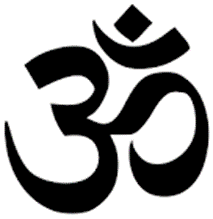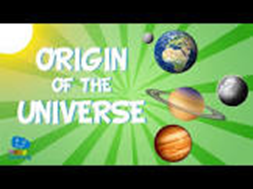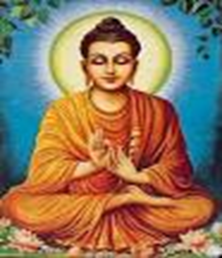Why our pupils learn about Religious, Moral and Philosophical Studies
Philosophy encourages our students to be curious, critical, and open-minded about the world and allows for the development of numerous skills that are highly valued by various employers - such as critical thinking, excellent written and verbal communication skills, forming and communicating complex arguments, analysis and research skills, comprehending difficult texts and abstract notions, leadership, effective collaboration and teamwork, self-motivation, self-confidence, resilience, impeccable organisation and time management skills. Today, these skills are called meta-skills and are embedded within RMPS and Philosophy courses.
A qualification in RMPS and / or Philosophy creates numerous potential career paths rather than being limited to one type of career - graduates can move onto roles in teaching, academic research, law and justice, finance, healthcare, the creative industries, the civil service, social work, non-profit organisations, and so on.
Religion provides the opportunity to explore some of the deepest and most significant ideas and values that have emerged in human history. Religion has been one of the most persistent forces in the history of humanity.
Firstly, religions continue to exert influence in profound ways throughout the world today. Think, for example, of the ongoing tensions in the Middle East, the debates over evolution, questions about abortion and the death penalty; how people think about these controversial issues reflects their religious convictions.
Secondly, religion asks the deepest, most important questions about human existence. Where do we come from? Why are we here? What happens to us after we die? Why do people suffer? How should we act? How can we live good lives? How can we understand people with beliefs that conflict with our own? What is the ultimate meaning of life? Different religions provide a variety of answers to these questions. The study of religion offers our students the opportunity to explore a range of answers to these profound questions and allows students to consider their own beliefs and values.
Thirdly, people act upon their religious beliefs every day. Exploring the range of religious world views at work in the past and present is crucial for understanding what people do and why they do it.
Fourthly, religion affects all aspects of human existence. It is difficult to study history, anthropology, sociology, political science, literature, music, art, theatre, psychology, education, or economics without understanding how religious views and ideals function in culture.
Fifthly, learning about religions is a great way of fostering tolerance and diversity.
Ethics (Morality) enables our students to live an authentic life. An authentic and meaningful life requires our students to live with a sense of integrity. Having a set of principles to guide their life and the choices they make is what ethics is all about.
Ethical people embody traits such as honesty, trustworthiness, loyalty, and caring. As a result, ethical people are perfectly suited not only for interpersonal relationships generally, but also more specifically for the kinds of interactions that make for thriving business.
Finally, ethics provides for a stable society. When people live ethical lives, they tell the truth, avoid harming others, and are generous. A stable society requires a lot of ethical people working together in highly coordinated ways.
As we all face the challenges of the present and future, including environmental problems, questions around migration and immigration, and societal inequality, we will need our students to be able to address these challenges together, working with businesses and other nations to promote a more ethical and sustainable way of living. The skills they develop in RMPS and Philosophy will help them to do this successfully.
-
Broad General Education (BGE) RMPS
-
S1 Topics:
Gods and Goddesses: Ancient and Modern


The ethics of Fast Fashion: being a global citizen
Festivals around the world
Understanding symbols and artefacts
S2 Topics:
Medical Ethics: designer babies and saviour siblings
Sectarianism in Islam and Christianity
Freewill and AI
S3 Topics:
Buddhism: five steps to developing compassion
Gender Issues
-
Core S3 and Core S4
-
In S3, pupils in core RMPS undertake an SQA Unit called World Religion and can be presented for either National 3 OR National 4 level accreditation. Pupils also study a non-accredited Unit in gender issues.
In S4, pupils in core RMPS can be presented for an SQA Unit called Morality and Belief and can be presented for a National 5 level accreditation. Pupils also study a non-accredited Unit in Social Anthropology.
Please note, SQA accreditations are UNIT only. To achieve the full award, pupils must undertake National 5 level courses.
-
National 5 RMPS
-
Morality and Justice: Crime and Punishment
- The purposes of punishment: retribution, deterrence,
reformation, protection
- Causes of crime: poverty, environment, psychological factors
- UK responses to crime: custodial sentences, non-custodial
sentences, crime prevention
- Capital punishment and life tariffs: humaneness, human right
In this unit we will begin by considering the purposes of punishment such as protecting society, rehabilitation and retribution. Then we’ll consider responses to crime in the UK, exploring issues such as the treatment of young offenders and both custodial and non-custodial sentences and the related moral implications these issues throw up. For example, should a person’s upbringing influence their sentence? Does prison work? Finally, we’ll also explore and debate the justification and humaneness of capital punishment and life sentences.

World Religion: Hinduism
We’ll explore key beliefs and values of Hinduism, seeking to understand how Hindus view the nature of human beings and our universe. We’ll also consider the impact of the religion on Hindus across the world, discussing and debating the various advantages and challenges of Hinduism in the modern world. How does karma really work? Do we have duties? Is there such a thing as a soul?

Religious and Philosophical Questions: Origins
- Role of a Creator
- Origins of the Universe
- Origins of Life
Was everything created? Is there a purpose to life and the universe? How did the universe get here? These are just a few of the really deep and meaningful questions we’ll explore in this unit. We’ll also investigate different theories about how and why the universe exists, and about life itself, drawing on scientific discoveries and theories as well as religious traditions and philosophical arguments. The quality of philosophical thinking in this Unit will really hone your critical thinking skills!

-
National 5 Philosophy
-
We will develop the ability to examine and assess the reliability of simple arguments by identifying, explaining and giving examples of the following:
- statement
- argument
- premise
- conclusion
- valid and invalid
Knowledge and Doubt
In this Unit, we will examine theories regarding the nature of knowledge and how it is acquired. We will examine either Descartes or Hume, and criticisms of their theories.
Moral Philosophy
We will examine theories regarding moral decision-making and how these theories might be applied to specific situations. We will study the moral theories of utilitarianism and Kantianism and be introduced to criticisms of these theories.
-
Higher RMPS
-
Morality and Justice: Crime and Punishment
- The purposes of punishment: retribution, deterrence,
reformation, protection
- Causes of crime: environment and psychological factors
- Responses to crime: custodial sentences, non-custodial
sentences, death penalty
- Capital punishment and life tariffs: humaneness, human rights
In this unit we will study the purposes of punishment such as protecting society, rehabilitation and retribution. Then we’ll consider responses to crime in the UK, exploring issues such as the treatment of offenders and both custodial and non-custodial sentences and the related moral implications these issues throw up. For example, should a person’s upbringing influence their sentence? Does prison work? We’ll look at the religious and non-religious implications and finally, we’ll also explore and debate the justification and humaneness of capital punishment and life sentences.

World Religion: Buddhism
We’ll explore key beliefs and values of Buddhists, seeking to understand how Buddhists view the nature of human beings and our world. We’ll also consider the impact of the religion on Buddhists across the world, discussing and debating the various advantages and challenges of Buddhism in the modern world. What is meditation? What is Nirvana? How could Buddhists respond to crime? Is rebirth real? How does karma really work? As Buddhism grows what does it offer the western world?

Religious and Philosophical Questions: Origins
- Role of a Creator
- Origins of the Universe
- Origins of Life
Was everything created? Is there a purpose to life and the universe? How did the universe get here? These are just a few of the really deep and meaningful questions we’ll explore in this unit. We’ll also investigate different theories about how and why the universe exists, and about life itself, drawing on scientific discoveries such as the Big Bang as well as religious traditions and philosophical arguments. The quality of philosophical thinking in this Unit will really hone your critical thinking skills!

-
Advanced Higher RMPS
-
Mandatory Units: Existence of God AND Dissertation
Selected Unit: Either Religious Experience OR Medical Ethics